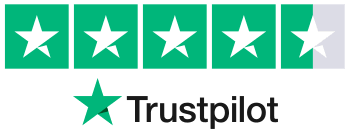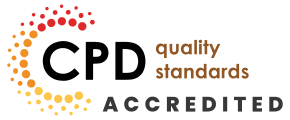
In the rapidly evolving world of education, online learning has emerged as a powerful and accessible method of acquiring knowledge. With the increasing demand for online courses, it has become essential for educators and institutions to effectively market their programs to reach and engage learners.
This is where digital marketing comes into play. Digital marketing encompasses a range of strategies and techniques designed to promote and market online learning programs, ensuring their visibility, attracting students, and driving enrollment.
In this article, we will delve into the eleven best practices for digital marketing in online learning. These practices are specifically tailored to help educators, course creators, and institutions navigate the digital landscape and optimize their marketing efforts.
By implementing these practices, you can create a robust digital marketing strategy that maximizes your online presence, engages learners, and ultimately leads to the success of your online learning programs.
Understanding Digital Marketing in Online Learning
Before diving into the best practices, let’s clarify what digital marketing means in the context of online learning. Digital marketing encompasses all the strategies and techniques used to promote and market online courses, programs, or educational platforms. It involves various channels, such as websites, social media, email marketing, search engine optimization (SEO), and more.
Digital marketing is vital for online learning because it helps educational institutions and course creators effectively reach their target audience, build brand awareness, and drive enrollment. Now, let’s explore the eleven best practices for digital marketing in online learning.
1. Website Optimization for Better Visibility
Website optimization plays a crucial role in improving the visibility of your online learning platform. By enhancing your website design, user experience, and content, you can attract more visitors and effectively engage potential learners.
To begin, it’s essential to create a visually appealing and user-friendly website that aligns with your brand identity. A well-designed website not only captivates visitors but also creates a positive first impression. Additionally, optimizing your website content is vital. By incorporating relevant keywords, meta tags, and descriptions, you can improve your search engine rankings and make it easier for learners to find your platform.
Moreover, with the increasing use of mobile devices, ensuring your website is mobile-responsive is paramount. The mobile-responsive design allows learners to access your courses seamlessly on various screen sizes, providing a positive user experience.
By optimizing your website for better visibility, you enhance your chances of capturing the attention of your target audience. A well-optimized website increases the visibility of your online learning programs in search engine results and other online channels, thus driving more traffic to your platform.
2. Content Marketing for Engaging Online Learners
Content marketing is a powerful strategy for engaging online learners and establishing your authority in the field of online education.
To begin, identify the pain points and needs of your learners and create content that addresses those challenges. This could include blog posts, videos, infographics, podcasts, and more. Diversifying your content formats ensures that you cater to different learning preferences and capture the attention of a wider audience.
When implementing content marketing, it is essential to incorporate search engine optimization (SEO) techniques. Conduct keyword research to identify relevant keywords and phrases that align with your online learning offerings. Use narratives, case studies, and real-life examples to engage readers emotionally and make your content relatable.
Remember to monitor the performance of your content marketing efforts. Analyze metrics such as website traffic, engagement levels, and conversions to assess the effectiveness of your content. This data will guide you in refining your content strategy and producing content that resonates with your target audience.
3. Utilizing Social Media Platforms
Social media platforms are powerful tools for promoting online learning programs. By strategically selecting the appropriate social media channels that align with your target audience’s preferences and behaviour, you can effectively reach and engage potential learners.
It is essential to create engaging content that not only educates but also entertains and inspires learners, capturing their interest and encouraging them to explore your offerings. Additionally, consider leveraging social media advertising to expand your reach, targeting a broader audience and driving enrollment in your online learning programs.
4. Security in Digital Marketing for Online Learning
Security is of utmost importance in the digital marketing landscape for online learning. To prioritize the security of your learners and their information, it is essential to take proactive measures.
Start by ensuring secure payment processes by integrating trusted payment gateways and implementing SSL certificates, such as Thawte SSL, Comodo SSL Certificate to encrypt sensitive financial transactions.
Protecting user data and privacy should be a top priority, and this can be achieved by following best practices for data encryption, secure storage, and responsible data handling.
Additionally, it is crucial to implement secure online learning platforms with robust authentication measures, such as multi-factor authentication, to safeguard learners’ personal information from unauthorized access or breaches.
By prioritizing security and utilizing trusted SSL providers, you create a safe and trustworthy environment that instills confidence in learners and encourages them to engage with your online learning programs.
5. Email Marketing for Effective Communication
Email marketing remains one of the most effective and direct ways to communicate with prospective learners. It provides a unique opportunity to engage with individuals on a personal level, delivering valuable information right to their inboxes.
To build an email subscriber list, offer valuable resources, such as e-books, whitepapers, or webinars, in exchange for their email addresses. Exclusive content, such as sneak peeks or early access to new courses, can also entice learners to subscribe.
When you send emails, it’s important to make them look nice and easy to read. You can do this by using colours and fonts that catch people’s attention. It’s also a good idea to include clear instructions on what you want people to do next, like clicking on a link or signing up for something.
To improve your email marketing campaigns, you should regularly analyze their performance. Track metrics like open rates, click-through rates, and conversions. Use this data to refine your strategy and optimize your campaigns for better results. By consistently delivering valuable and personalized content to your subscribers, you can build trust, drive enrollment, and nurture long-term relationships with your online learning community
Digital Marketing Masterclass
This comprehensive course mainly focuses on teaching you the effective techniques for promoting your goods.
Enrol Now
Digital Marketing Masterclass
This comprehensive course mainly focuses on teaching you the effective techniques for promoting your goods.
Enrol Now
6. Implementing Search Engine Optimization (SEO)
Search engine optimization (SEO) plays a vital role in improving the visibility of your online learning platform and attracting organic traffic from search engines. By implementing effective SEO strategies, you can increase your chances of reaching potential learners who are actively searching for educational resources.
Begin by conducting thorough keyword research to identify relevant keywords and phrases that align with your online learning offerings. Consider the search volume, competition, and user intent associated with each keyword. Incorporate these keywords strategically throughout your website’s content, including titles, headings, meta descriptions, and URLs. By optimizing these on-page elements, you provide search engines with clear signals about the relevance of your content, helping them understand and rank your website accordingly.
In addition to on-page optimization, building high-quality backlinks from reputable websites is another essential aspect of SEO. This can be achieved through guest blogging, content partnerships, or networking with influencers in your niche. Quality backlinks help search engines recognize the value of your content and improve your website’s overall visibility in search results.
To make sure your website is doing well, you should regularly check how many people visit it, how high it ranks in search results, and how engaged your visitors are. You can use tools like Google Analytics or other SEO analytics platforms to track these metrics. This data will help you understand what’s working and what’s not, so you can make changes to improve your website’s performance.
7. Pay-Per-Click (PPC) Advertising
PPC advertising enables you to display targeted ads to potential learners and drive traffic to your online learning platform. Set up campaigns on platforms like Google Ads and social media networks. Choose relevant keywords and craft compelling ad copy to attract clicks. Continuously monitor and optimize your ad performance to maximize your return on investment. By leveraging PPC advertising effectively, you can reach your target audience, increase visibility, and drive enrollment in your online courses.
8. Data Analytics for Informed Decision Making
Data analytics can help you understand how well your digital marketing campaigns are working. By tracking things like website traffic and user behaviour, you can see what’s working and what’s not. This information can help you make changes to your campaigns to improve your results.
For example, if you see that a lot of people are visiting your website but not signing up for your online learning programs, you might want to change your website’s design or content to make it more appealing to your target audience. Or, if you see that people are clicking on your ads but not actually buying anything, you might want to change your ad copy or target audience.
Data analytics can be a powerful tool for improving your digital marketing campaigns. By tracking the right metrics and making changes based on the data, you can improve your results and get more out of your marketing budget.
9. Marketing Automation for Personalized Experiences
Marketing automation is a game-changer for online learning platforms, offering streamlined processes and personalized experiences. By leveraging automation tools, such as email drip campaigns, lead nurturing workflows, and personalized content delivery, you can engage learners based on their behaviour and preferences.
Analyzing and optimizing automated campaigns ensures maximum effectiveness and efficiency. With marketing automation, you can automate repetitive tasks, leverage data-driven insights, and nurture leads effectively, resulting in higher enrollment rates. By delivering personalized experiences at scale, marketing automation drives the success of your online learning programs while saving time and resources.
10. Building a Strong Online Reputation
Having a good online reputation is very important for attracting and keeping learners. To build and keep a good reputation, it is important to actively monitor online reviews and feedback about your online learning programs.
By staying informed about learners’ experiences and perceptions, you can address any issues or concerns promptly and professionally. Responding to customer inquiries and concerns in a timely manner not only shows your dedication to their success but also helps foster a positive brand image.
Consistently delivering high-quality education and providing exceptional learner support are key factors in building a strong online reputation that resonates with learners and encourages them to choose your platform for their educational needs.
11. Measuring and Evaluating Marketing Efforts
Measuring and evaluating your marketing efforts is essential to understand what works and what needs improvement. By tracking key performance indicators (KPIs) such as website traffic, conversion rates, click-through rates, and engagement metrics, you gain valuable insights into the effectiveness of your digital marketing campaigns.
Additionally, conducting A/B testing allows you to compare different strategies and identify the most successful approaches. Analyzing the results of these tests enables you to optimize your marketing campaigns for better performance and higher conversions.
It is important to continuously refine and iterate your marketing approach based on the data and insights you gather, as this iterative process allows you to adapt and improve your strategies over time, ultimately leading to better outcomes and greater success.
Conclusion
Digital marketing plays a pivotal role in the success of online learning programs. By implementing these eleven best practices, you can effectively promote your courses, engage learners, and drive enrollment. Remember to develop a comprehensive strategy, optimize your website, create valuable content, leverage social media platforms, utilize email marketing, implement SEO and PPC advertising, analyze data, utilize influencer marketing, automate marketing processes, build a strong online reputation, prioritize security, and measure and evaluate your efforts. By adopting these practices, you can maximize the impact of your digital marketing initiatives and achieve success in the competitive landscape of online learning.











0 responses on "11 Best Practices for Digital Marketing in Online Learning"